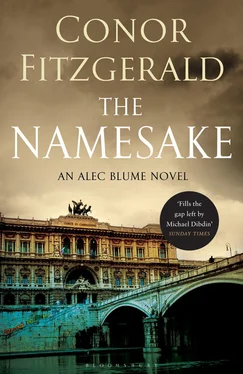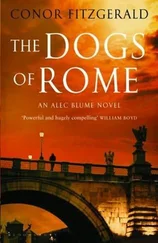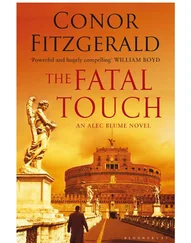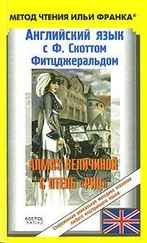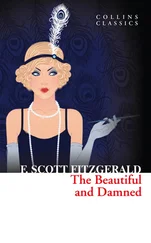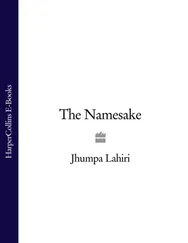Conor Fitzgerald - The Namesake
Здесь есть возможность читать онлайн «Conor Fitzgerald - The Namesake» весь текст электронной книги совершенно бесплатно (целиком полную версию без сокращений). В некоторых случаях можно слушать аудио, скачать через торрент в формате fb2 и присутствует краткое содержание. Жанр: Полицейский детектив, на английском языке. Описание произведения, (предисловие) а так же отзывы посетителей доступны на портале библиотеки ЛибКат.
- Название:The Namesake
- Автор:
- Жанр:
- Год:неизвестен
- ISBN:нет данных
- Рейтинг книги:3 / 5. Голосов: 1
-
Избранное:Добавить в избранное
- Отзывы:
-
Ваша оценка:
- 60
- 1
- 2
- 3
- 4
- 5
The Namesake: краткое содержание, описание и аннотация
Предлагаем к чтению аннотацию, описание, краткое содержание или предисловие (зависит от того, что написал сам автор книги «The Namesake»). Если вы не нашли необходимую информацию о книге — напишите в комментариях, мы постараемся отыскать её.
The Namesake — читать онлайн бесплатно полную книгу (весь текст) целиком
Ниже представлен текст книги, разбитый по страницам. Система сохранения места последней прочитанной страницы, позволяет с удобством читать онлайн бесплатно книгу «The Namesake», без необходимости каждый раз заново искать на чём Вы остановились. Поставьте закладку, и сможете в любой момент перейти на страницу, на которой закончили чтение.
Интервал:
Закладка:
The brother Knights brought the threads to an old spinster who wove them into five fine cloaks. The Knights then put the spinster to the sword so that she might never tell of their secret. Each of the brothers took one cloak for himself. Osso, the eldest brother, gave the fourth to the poet Dante to accompany him safely into exile from treacherous Florence, as well as on his long voyage into hell, purgatory and heaven. Who wore the fifth cloak remains unknown to this day.
Osso, Matrosso and Carcagnosso, deeply touched by the glimpses of future evil deeds, fashioned a fine ship with three masts of living trees and five sails and travelled across the world seeking to warn peoples of coming calamities. They travelled to the noble races of the Americas, the Aztecs, Mayas and Incas, and forewarned them of the terrible fates that would befall them when the next white men arrived in tall ships.
The people listened to the Knights, and their warning was passed from generation to generation. But those peoples who forgot their traditions, also forgot the story of the Knights, so that when the time of the catastrophe came, they were unprepared.
The Knights then performed many acts of courage, and their fame spread far and wide. They travelled to Tibet, Samarkand and prospered for some time in the city states of the Hanseatic League.
Finally, wearied of travel, Osso, Matrosso and Carcagnosso sought peace and tranquillity in the Holy Kingdom of Spain. But their renown travelled faster than they, and ere they had set foot in Spain, they had already become hateful to the vengeful nobles of the Kingdom. Unjustly accused of ignoble deeds against a maiden of Spanish royal blood, the three Knights were forced to flee the Kingdom. They settled on the island of Favignana, north-west of Sicily, opposite the ancient city of Trapani.
There, the three brother Knights decided to go their separate ways. Osso, who dedicated his life to the Lord Jesus Christ, chose to travel the narrow body of water to Sicily and settle there. Carcagnosso, beloved of Saint Peter, travelled the length and breadth of Italy and, finding that Naples was the most beautiful of all the cities he had seen in his long travels, chose it for his home. Matrosso, who turned all his prayers to the Archangel Michael, crossed the Straits of Messina to the region of Calabria, and there he made his home among the proud descendants of the Normans.
Each Knight brought with him a code of honour. As they took up their new and final abodes, they enshrined these codes of honour among their followers, who formed societies of honour. Osso’s Honoured Society became known as the Mafia, which means virtue; Carcagnosso formed the Most Excellent Reformed Society, the Camorra; Matrosso formed the Society of Valorous Men, the Ndrangheta.
Some say the cloaks were unravelled and the magic threads distributed to the most faithful, others that they are still worn by a secret elect who may be seen by those who have eyes to look…
34
Locri
The story of Osso, Matrosso and Carcagnosso, his father had told him, was like the story of Jesus Christ. It was absolutely true, and where it evidently was not true, it contained symbolic truth. Symbols were to be accepted in absolute solemnity. Names were sacred, oaths even more so.
His father told him variations of the Osso, Matrosso and Carcagnosso story, some of which he already knew, others he had not heard. Each variation, his father explained, was a possibility, and each was spoken with reverence. Sometimes there were deeper truths, sometimes there were pieces of history left out or suppressed. Osso, Matrosso and Carcagnosso, if not Templars, if not the three founders of the three honoured Societies, may well have been Norman brother knights. Calabrians were often Greek, his father explained, and some of them, the weakest, were of Byzantine stock. Others, whose hard blue eyes could be seen among the leaders of so many of the top families, were the direct descendants of the Norman conquerors.
‘In the year 999, a handful of men from the north, the Normans, came down and seized control of Apulia, Calabria and Sicily,’ his father explained one night during a brief visit. ‘They expelled the Lombards, the Byzantines and the Arabs, and commanded with an iron fist. But they did not disdain the people of Apulia, Basilicata, Campania, Sicily and Calabria, a people whose exceptional beauty was the result of mixing the blood of the red Germanic Lombards with the dark-skinned Arabs and Africans, and the pampered Greeks, Albanians, Illyrians and descendants of the ancient Romans. The Normans and then their descendants melted into the local people, but without losing any of their fierceness. They set out to conquer the Holy Land, while their cousins on the Atlantic coast of France, lacking land and with warrior fathers who did not want to pass on any of their wealth even to their own sons, conquered the British Isles. Ours is warrior blood. That, son, is why your eyes are blue and why I named you Ruggiero and your baby brother Roberto. In history, the Norman Robert was earlier, but Roger was greater. You are named after the Norman Knight who created the Kingdom of the South. Learn about him.’
Ruggiero had done as his father asked, reading books he barely understood, then reading them again. He even read three in English. And when his father returned six months later, he was dying to show off his newly acquired knowledge, but his father asked him nothing. A full year later, he appeared one night at the doorway of Ruggiero’s bedroom and returned to the subject.
‘Your mother tells me you have been reading those books about the Normans. What have you learned?’
Ruggiero started listing the dates and places of the battles through southern Italy, the leading knights, the Norman families, and their long war with the Byzantines, the Pope and the Lombards. His father listened, nodded, asked him some dates, corrected a few things, and gave him no praise.
The following night, he asked him what else he had learned, and Ruggiero spoke of the conquest of the Holy Land, the Italians and Normans in Antioch and Jerusalem, all the way up to the final defeat of the last of the Norman kings in Benevento.
On the third and final night before he left for Germany, his father again asked him what he had learned, but Ruggiero had come to the death of Conradin and the books his father had given him went no further.
‘So, what did you learn?’
‘I don’t know.’
‘Think.’
‘I learned what sort of people they were.’
‘And what was that?’ asked his father.
‘They were men of faith, who believed in Jesus Christ and the Holy Apostolic Church, but they still went to war against the Pope.’
‘Excellent. Even as they held him captive, they begged his forgiveness. What else?’
‘Brother fought brother, cousin fought cousin. And they had a grand council. When they had a common enemy, like the emperor of Constantinople, they came together. But they also fought each other, and sometimes even in the middle of a joint operation one family would try to gain the lands of another.’
‘Yet each battle was eventually resolved by the other families if ever a dispute threatened to undermine their right to rule southern Italy,’ said his father.
Six months later his father, speaking to him after dinner while his mother was upstairs with the newborn Robertino, said, ‘I will not sit by your bedside and tell you stories any more. You are too old for that.’
Ruggiero nodded, sad and pleased.
‘But a little modern history won’t hurt. I’m talking about the 1960s, a long time before you were born, but a period which to many people still seems like yesterday. It was a period of change and internal war. Since then, we have become ever stronger, which is only natural. Do you know why?’
Читать дальшеИнтервал:
Закладка:
Похожие книги на «The Namesake»
Представляем Вашему вниманию похожие книги на «The Namesake» списком для выбора. Мы отобрали схожую по названию и смыслу литературу в надежде предоставить читателям больше вариантов отыскать новые, интересные, ещё непрочитанные произведения.
Обсуждение, отзывы о книге «The Namesake» и просто собственные мнения читателей. Оставьте ваши комментарии, напишите, что Вы думаете о произведении, его смысле или главных героях. Укажите что конкретно понравилось, а что нет, и почему Вы так считаете.
